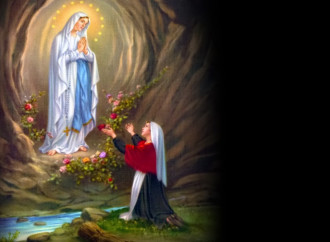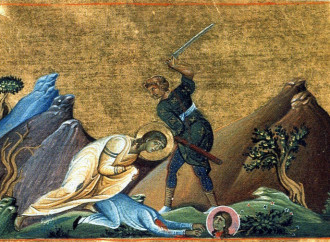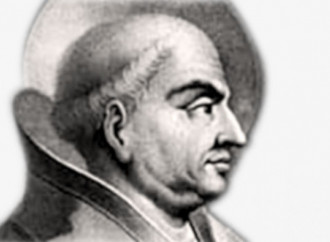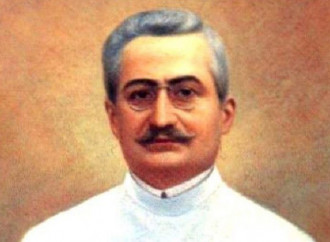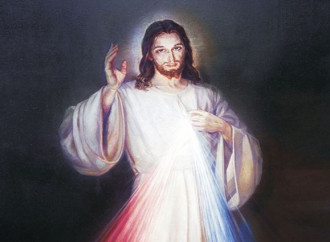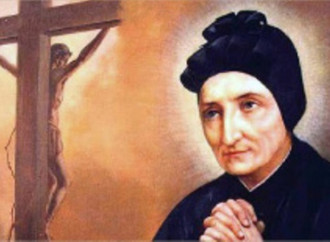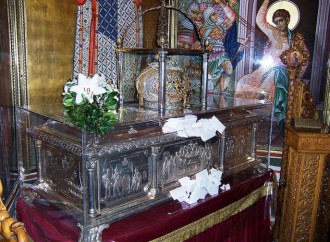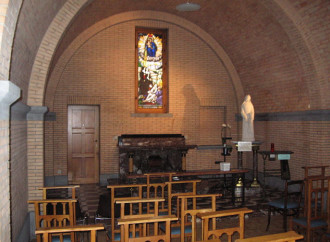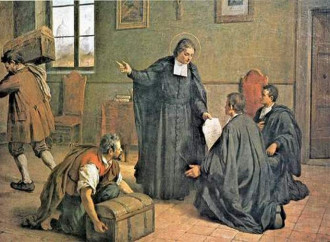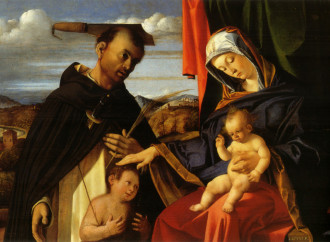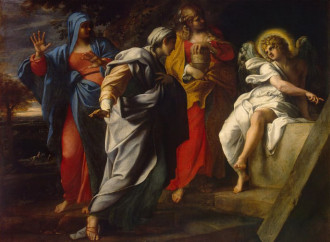Saint Bernadette
"Oh yes! But I had no right to such grace”, Saint Bernadette Soubirous (1844-1879) one day replied to a sister who reminded her of the sweetness of the times she had seen Our Lady. This was how Bernadette was, adorned with simplicity in her every gesture and word.
Saints Basilissa and Anastasia
Among the first holy Roman martyrs, Basilissa and Anastasia were disciples of Peter and Paul at the time of Emperor Nero. After the martyrdom of the two holy apostles they piously took care of the burial of their bodies.
Saint Lidwina
Much venerated in the Netherlands, Saint Lidwina of Schiedam (1380-1433) was a Dutch mystic who offered all her sufferings to Christ for the salvation of souls and had visions of Hell, Purgatory and Paradise.
Saint Martin I
St Martin I (c. 600-655) showed his mettle when he was elected pope in July 649, because he did not wait for the consent of the Byzantine emperor Constant II, going against the practice that had been established from Justinian onwards, and which lasted more than two centuries (537-752)
Saint Joseph Moscati
“My place is by the side of the sick”, was the mantra of the medical luminary Saint Giuseppe Moscati (1880-1927), a model for every doctor and every man.
Divine Mercy Sunday
On 22 February 1931 Jesus first communicated to St. Faustina Kowalska His desire for a Feast of Divine Mercy to be celebrated on the first Sunday after Easter, asking her to announce the extraordinary graces He would bestow.
Saint Magdalene of Canossa
Born into a family of ancient nobility, Saint Magdalene of Canossa (1774-1835) found her perfect happiness in following Christ and serving the lowliest.
Saint Demetrius of Thessalonica
He is highly venerated in the East, where the Orthodox Churches attribute to him the title of Megalomartyr (great martyr) and his cult is almost equal to that of Saint George. Saint Demetrius of Thessalonica offered his testimony of faith in Christ with his blood.
Saint Julia Billiart
Julia Billiart (1751-1816), a French woman, was the founder of an institute rich in vocations, the Sisters of Notre Dame of Namur. From an early age she had such a relationship with God that the bishop of Ghent, Monsignor Maurice de Broglie, told the saint that she had saved more souls through sharing her rich interior life with the nuns than through the rest of her fervent apostolic activity.
Saint John Baptist de La Salle
The educational innovations of Saint John Baptist de La Salle (1651-1719) were so important that he became a giant in the history of pedagogy. It is no coincidence that Pius XII proclaimed him patron saint of educators and teachers.
Saint Peter of Verona
Among the most depicted saints due to the circumstances of his martyrdom, Peter of Verona (c. 1205-1252) was born from parents involved with Catharism, the heresy that he fought throughout his life, accomplishing numerous conversions.
Easter Monday
For the liturgy of the Church, today is Monday in the Octave of Easter. Traditionally it recalls what happened at the tomb the previous day, on the Sunday morning when the pious women - Mary Magdalene, Salome and Mary mother of James - went to the tomb with the intention of anointing Jesus' body with aromatic oils.
